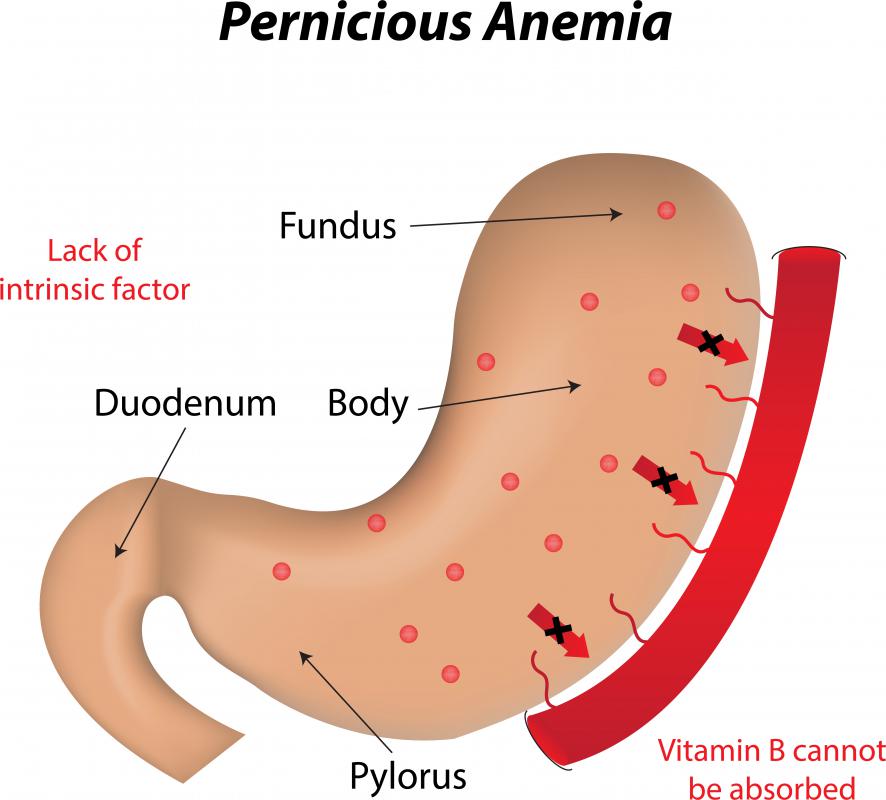At WiseGEEK, we're committed to delivering accurate, trustworthy information. Our expert-authored content is rigorously fact-checked and sourced from credible authorities. Discover how we uphold the highest standards in providing you with reliable knowledge.
What are Pernicious Anemia Symptoms?
Pernicious anemia is a disease caused by an inability to absorb vitamin B12, which is essential for the body's production of red blood cells. Different people may experience a variety of pernicious anemia symptoms, which often include both physical and emotional changes. Many pernicious anemia symptoms are more generally symptoms of anemia, while others can be considered symptoms of a B12 deficiency. Complications due to this type of anemia can be both unique and severe and may also assist in diagnosis when the disorder is discovered at a late stage.
One of the most common pernicious anemia symptoms is fatigue. Some people describe this symptom as a sensation of being tired, weak, or unable to wake up. Many people experience depression that is caused by anemia and that can be accompanied by fatigue. A person might feel as though he or she is seeing life in a fuzzy manner or walking through a fog. While being tired is not always an indicator of anemia, let alone pernicious anemia, aggressive fatigue that is not remedied by better diet or sleep may be a convincing sign of anemia.

Heart palpitations, diarrhea, and weight loss can all also be pernicious anemia symptoms. These symptoms are also usually signs of anemia more generally. Changes in blood pressure, either low or high, can be symptoms of anemia. In some cases, a person might feel like his or her heart is beating too hard or too quickly. Each of these symptoms has many alternate causes, but a number of these symptoms occurring simultaneously might indicate anemia.

Vitamin B12 deficiency often causes neuropathic pain and affects the nervous system in general. A person may feel pins and needles in his or her toes or a reduced sense of touch. Sometimes a person with a B12 deficiency experiences a decreased ability to feel vibrations. Pernicious anemia symptoms might include decreased coordination, resulting in frequent falls or difficulty performing normally simple tasks such as climbing. Occasionally, a person with a B12 deficiency related to pernicious anemia might become colorblind.

There are effective treatment measures for pernicious anemia, as well as methods of detecting it before more serious symptoms occur. In fact, this disorder is frequently caught before any permanent damage occurs or the patient feels becomes severely sick. When pernicious anemia goes undiagnosed, serious complications such as gastric cancer and permanent nerve damage can occur. In many cases, treatment is as simple as receiving vitamin B12 injections. Putting together the symptoms required for a diagnosis and going through testing are often the most difficult parts of living with pernicious anemia.
AS FEATURED ON:
AS FEATURED ON:
















Discuss this Article
Post your comments